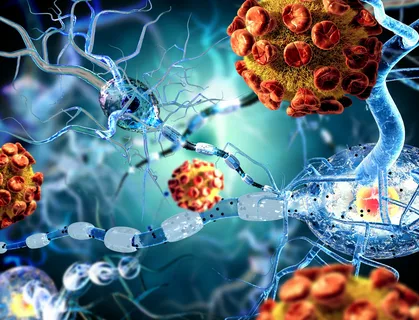Researchers at the Technical University of Munich (TUM) and Ludwig-Maximilians-Universität München (LMU) Hospital have made a groundbreaking discovery regarding how tumors evade the immune system’s response, specifically in relation to cytotoxic T cells. The team, led by Dr. Jan Böttcher from TUM and Prof. Sebastian Kobold from LMU Klinikum München, published their findings in the journal Nature.
Tumors often hinder the immune system’s response to cancer cells, preventing them from being recognized as threats or rendering them inactive. Immunotherapies aim to stimulate the immune system, particularly T cells, to combat cancer. However, these therapies do not work for many cancer patients, and researchers are actively seeking explanations and new strategies.
The researchers discovered that tumors use prostaglandin E2, a messenger substance, to influence immune cells during the early stages of the immune response. Many cancer cells exhibit increased secretion of prostaglandin E2, which binds to EP2 and EP4 receptors on certain immune cells. These stem-like T cells migrate to the tumor site and, if the immune response is successful, multiply and develop into cytotoxic T cells that attack the cancer. However, when tumors secrete prostaglandin E2 and this factor binds to the receptors, the T cell response collapses, allowing the tumor to progress.
Böttcher explains, “We have discovered a mechanism that influences the body’s immune response in a crucial phase. Many tumors prevent the stem-like T cells from generating cytotoxic T cells in the tumor that could attack the cancer.”
Current immunotherapies focus on preventing the cancer from suppressing immune responses at a later phase. For example, checkpoint inhibitor therapies aim to release the blockade of fully differentiated cytotoxic T cells and reactivate them. However, these therapies may be more effective if the effects of prostaglandin E2 on stem-like T cells are blocked, enabling their unhindered differentiation within tumor tissue.
Kobold adds, “Our findings suggest that current treatment approaches could be more effective if the effects of prostaglandin E2 on stem-like T cells are neutralized, allowing them to differentiate freely within the tumor tissue.”
A second research publication in Nature investigates the effects of prostaglandin E2 on the immune system, with researchers from the University Hospital of Lausanne collaborating with the Munich team. They found that blocking the release of prostaglandin E2 in cancer tissue led to better T cell expansion and improved their ability to fight human cancer cells.
Böttcher concludes, “This discovery provides a concrete starting point for significantly improving immunotherapies. Researchers around the world must now develop strategies to overcome the tumors’ defense mechanisms by stopping the effects of prostaglandin E2—either by preventing tumors from producing the molecule or by making immune cells resistant to it.”
*Note:
1. Source: Coherent Market Insights, Public sources, Desk research
2. We have leveraged AI tools to mine information and compile it

